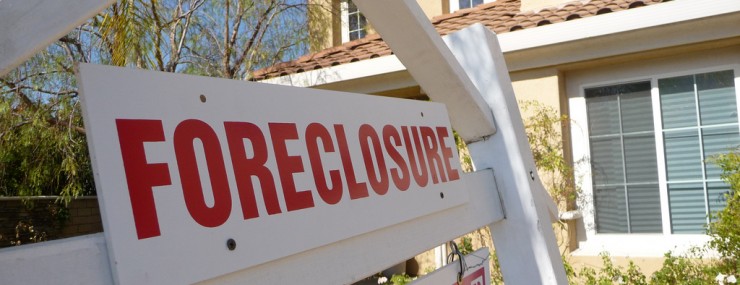Despite state legislation aimed to assist with and reduce the number of foreclosures, Florida remains the leader in foreclosures across the country. Overall in the state, foreclosures are down 15% from 2013 to 2014 but that fact doesn’t offer any consolation to those who have received notice of default. There are many options for home owners when faced with the prospect of foreclosure but it can be overwhelming and confusing to sort through and decide which option or options may be best for the owner’s situation.

Reinstatement
Reinstatement may be a good option if the home owner fell behind on the mortgage due to an emergency situation. The mortgage company’s loss prevention department will be able to provide a reinstatement quote which will include interest, late fees, and attorney fees, if applicable. If the owner is unable to pay the amount in full, the lender may be able to draft a repayment plan over the course of a few months.
Loan Modification
Despite what the media would have you believe, loan modification programs are not always easy to qualify for. The lender is required to meet the guidelines set forth by the mortgage investor when qualifying owners for a loan modification. If a home owner qualifies for a modification, the terms of the mortgage are adjusted either temporarily or permanently and the arrearages will be rolled back into the loan. Many lenders require that the home owner make a series of trial payments before finalizing the modification, placing the account in current status, and ending any foreclosure action.
Bankruptcy
There’s a heavy stigma involved with bankruptcy but it’s not as lethal to a borrower’s credit history as many think. Filing bankruptcy immediately haults a foreclosure from proceeding but it does not dismiss it from the Court’s docket. There are two types of bankruptcy an individual can file: Chapter 7 and Chapter 13. Chapter 7 will liquidate all of the assets a borrower has and the proceeds will be distributed to creditors according to a plan developed by the court. Chapter 13 will settle the outstanding debts of a borrower but for a greatly reduced amount, again, according to a plan developed by the court. If a home owner files Chapter 7, they will turn over ownership of the home to the mortgage company either through a deed or foreclosure, while a Chapter 13 plan will most likely allow the borrower to retain the home and the mortgage after the arrearage is settled.
Deed in Lieu of Foreclosure
If the mortgage company is willing, a home owner who will be unable to catch up on their arrearages and stay current can tender a Deed-in-Lieu of Foreclosure to the mortgage company. With this option, the home owner deeds their full interest in the property to the mortgage company in exchange for the foreclosure action ceasing. Again the home owner needs to qualify with the mortgage company and the investor before being able to proceed with this option and each lender and investor has different criteria to be met.
Short Sale
With this option, the home owner will partner with a licensed Realtor to list the property and market it as a short sale. The home owner’s mortgage company may require that they have final approval on the listing price and other marketing techniques. It’s best to work with a Realtor experienced in short sale marketing and transactions. Once an offer has been submitted by a potential buyer, the Realtor and home owner will submit the offer to the mortgage company for final approval. Approval is normally required because the sales price will be less than what is owed on the mortgage. After approval has been received, the transaction will proceed as a fairly typical closing with any remaining proceeds being delivered to the mortgage company to settle the outstanding debt.
Foreclosure
Sometimes none of the remedies listed above will be applicable to or will fail to resolve a foreclosure situation. On average it takes a year for the foreclosure to be completed in the state of Florida although timelines are different for each case. Once a foreclosure is completed and the mortgage company is the titled owner of the property the previous owner will need to vacate the property and if they do not leave an eviction proceeding will be filed.
Obviously, some resolutions are better than other. Short sales, deeds-in-lieu of foreclosure, and foreclosure open home owners up to possible deficiency judgments and both bankruptcy and foreclosure will affect a person’s credit history. Foreclosure is a legal proceeding and if you are named as a defendant in a foreclosure action you should seek the advice of an attorney.

[…] 2008, foreclosures have become common place. As we’ve previously discussed, there are other options to foreclosures that can help satisfy the debt owed to the mortgage company and assist the home owner to get out […]